-
Pushpanjali Eye Care Hospital, Golpark, Kolkata-700029
Pushpanjali Eye Care Hospital, Golpark, Kolkata-700029

We Are NABH Accredited Eye Hospital In Kolkata

By PushpanjaliEyeCare
Every day, our eyes take a beating from things like sunlight, screens, pollution, and just getting older. All that stress piles up and triggers free radicals, tiny troublemakers that chip away at our eye tissues. That’s how you end up...

By PushpanjaliEyeCare
Although your eyes are amazing organs, they are extremely delicate. Your natural lens filters light daily to improve your vision. This continuous exposure, however, has a price. You may safeguard your vision for years to come by being aware. Know...
By PushpanjaliEyeCare
One of the most popular medical procedures in the world is cataract surgery. It helps millions of individuals regain their vision every year. The intraocular lens (IOL) is an artificial lens implanted to replace the clouded natural lens. This is...

By PushpanjaliEyeCare
When you consider cataracts, you may worry about the hazy eyes of senior family members. You wonder about a “good eye specialist near me”. Yet, beneath that milky appearance is an intriguing molecular drama. This is because proteins that were...
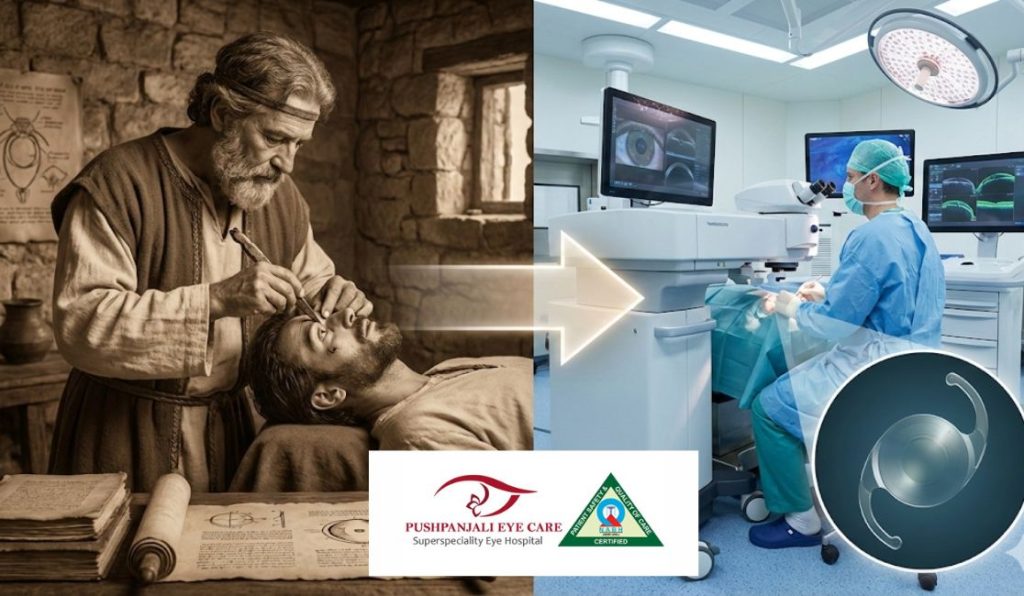
By PushpanjaliEyeCare
For thousands of years, cataracts have affected people. It is the clouding of the natural lens of the eye. However, one of the most amazing evolutionary stories in medicine is the path from antiquated treatments to modern precision laser surgeries....

By PushpanjaliEyeCare
You have finally been able to ditch those glasses you always wanted to! You are free from that pair of thick glasses just sitting on your nose all day! You have been to the best retina specialist in Kolkata, and...
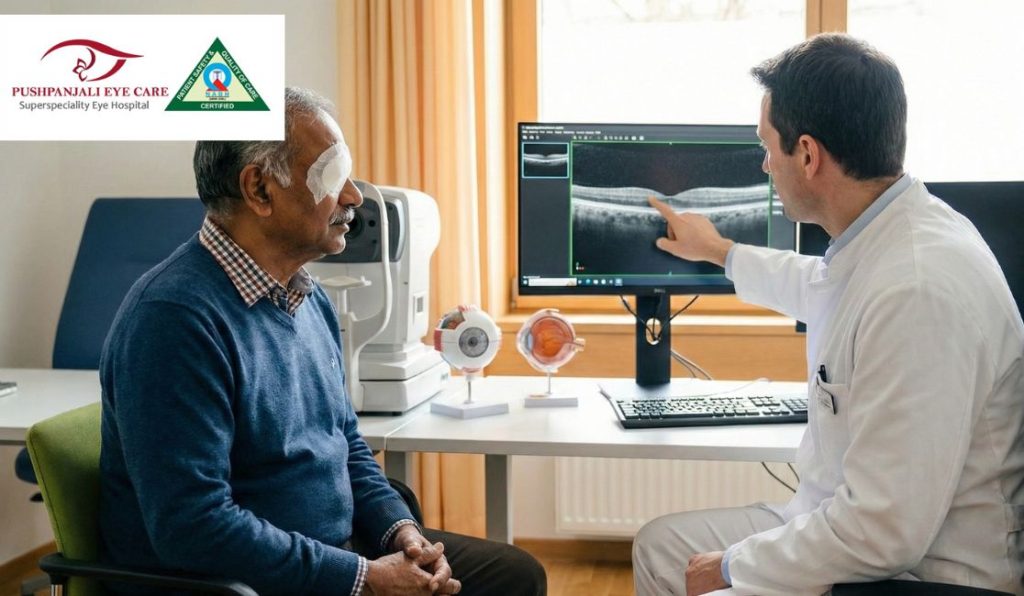
By PushpanjaliEyeCare
The vitreous gel fills most of your eyeball. This gel is removed to address a number of issues that may be irritating your eye. Your best retina specialist in Kolkata will tell you all about it. But before you book...

By PushpanjaliEyeCare
If you're searching for laser eye surgery in Kolkata, you might have considered the possibility of an upcoming LASIK surgery. Being unsure is a crucial part of the process. You have been wearing contact lenses or glasses for way too...

By PushpanjaliEyeCare
A cloudy lens is a common condition that can happen due to age or premature ageing of the eye. One of the most common procedures to tackle this clouded eye is Cataract surgery. The procedure removes the compromised lens and...

By PushpanjaliEyeCare
[audio mp3="https://pushpanjalieyecare.com/wp-content/uploads/2025/11/how-climate-and-pollution-might-affect-eye-health.mp3"][/audio] The eyes are exposed to environmental changes from sunrise to sunset, and with growing pollution and a change in climate, the eyes remain in a vulnerable condition. Increased heat waves and poor air quality can hamper vision and...

By PushpanjaliEyeCare
[audio mp3="https://pushpanjalieyecare.com/wp-content/uploads/2025/11/from-onion-tears-to-dry-eyes-eye-care-hacks-for-home-chefs.mp3"][/audio] Having tears in the eyes after chopping onions might be a natural phenomenon, but it can also indicate a serious eye problem. If your eyes sting with tears or you feel dryness in the eye areas, you must...

By PushpanjaliEyeCare
Dilated eye testing is vital to overall health because it allows your eye doctor to closely examine the retina, optic nerve, and many other areas for manifestations of early disease. Life-threatening diseases like glaucoma, diabetic retinopathy, and macular degeneration may...

By PushpanjaliEyeCare
In this digital era, the young generation spends most of their time scrolling through social media or watching late-night movies on Netflix. Do you think it doesnot harm your eye? If you are unaware of the impact of prolonged exposure...

By PushpanjaliEyeCare
[audio mp3="https://pushpanjalieyecare.com/wp-content/uploads/2025/10/debunking-common-myths-about-modern-eye-procedures.mp3"][/audio] Eye surgery today, such as LASIK, PRK, and cataracts, has transformed vision correction with rapid recovery and incredible results. The majority of individuals miss out on these wonderful treatments due to lingering myth and outdated information. This myth-making...

By PushpanjaliEyeCare
Vision correction procedure offers more than a better view of life without glasses. This surgery comes up with a long-term solution for those who are seeking clarity. Whether it’s a laser-based method or any traditional form of refractive correction, patients...

By PushpanjaliEyeCare
[audio mp3="https://pushpanjalieyecare.com/wp-content/uploads/2025/09/is-it-too-difficult-to-get-the-best-treatment-for-amblyopia.mp3"][/audio] Does your child quite often complain about blurry vision? After carrying out several experiments at home, did you infer that one of the eyes does not reach normal vision? If so, then there are higher chances that the...

By PushpanjaliEyeCare
[audio mp3="https://pushpanjalieyecare.com/wp-content/uploads/2025/09/glaucoma-in-younger-adults-modern-treatment-process.mp3"][/audio] Do you believe that glaucoma can affect only older adults? Then you must change your thinking. Earlier, it was thought that glaucoma only damages the eyesight of older adults, but in 2025, glaucoma is not considered by age....

By PushpanjaliEyeCare
Blurry vision isn’t always about getting older. There Can Be numerous reasons. Maybe it’s a sign of a probable cataract issue. It has become a severe issue in recent times. Millions of people are affected every year. The situation often...

By PushpanjaliEyeCare
You might know that nearly half of India's population, i.e., 550 million individuals, have vision issues. And hence, it is not a rarity at all to go in for eye surgery in their instance (Source). Eye surgery of whatever magnitude...

By PushpanjaliEyeCare
The natural ageing process brings significant changes to our overall body. Among the various changes in the overall body, the human eye undergoes a drastic change in the form of vision. It is natural for vision to change with age,...

By PushpanjaliEyeCare
We all know that the skin around our eyes is delicate and prone to environmental damage. Are you noticing the signs of aging, such as puffy under-eye bags, drooping eyelids, or excess skin? Is your vision becoming blurry with each...

By PushpanjaliEyeCare
Are you aware of the medical benefits of tears? No! Tears help in bathing the eye surface, thus washing away almost all irritants. It also leads to moistening of the eyes, finally reducing the probability of any serious infection. But...

By PushpanjaliEyeCare
Selecting your surgeon for your eye surgery is an important decision that will have an amazing impact on your vision and health. If you're getting cataract surgery, LASIK, or some other complex eye procedure, how skilled your surgeon is, how...

By PushpanjaliEyeCare
Did you know the risk of optic nerve damage was three times greater for individuals who slept less than three hours or more than ten hours a night compared to individuals who slept seven hours or more?(Source) This indicates individuals...

By PushpanjaliEyeCare
Have you heard of refractive error? It is one of those common vision issues that affects the majority of us. Regardless of your age, this issue can affect everyone. Refractive error can occur if your eye shape prevents light from...

By PushpanjaliEyeCare
Gadgets are now an integral part of our day-to-day lives. This development of science has brought about a massive alteration in our lives. With all its advantages, those technical advancements can bring specific health-related issues. Computer Vision Syndrome, or Digital...
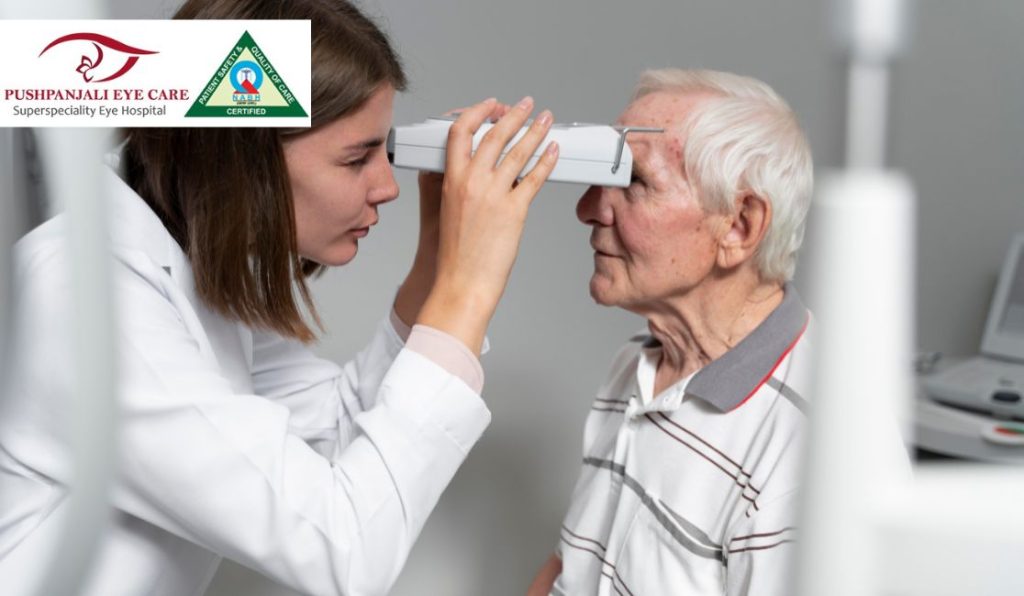
By PushpanjaliEyeCare
Eye issues are an inevitable part of getting older. At the same time, some visions are nothing more than mere annoyances. But others can lead to permanent vision loss and even blindness. The best way to protect your eyes in...

By PushpanjaliEyeCare
The field of eye care has undergone a transformative shift in the present years. All the thanks go to the integration of cutting-edge technologies. From artificial intelligence to advanced imaging systems, modern eye clinics are focusing on integrating the latest...

By PushpanjaliEyeCare
In India, 8.9 million people are blind, and 11.9 million people suffer from Glaucoma. In India, Glaucoma accounts for 12.8% of blindness (Source). This suggests that the situation in India is not ideal for maintaining healthy eyesight. Are you someone...

By PushpanjaliEyeCare
Are you planning to experience laser eye surgery but hesitant about the procedure? With some misinformation circulating, people believe that laser eye surgery is a complex procedure. However, you may not be aware that laser eye surgery has already saved...

By PushpanjaliEyeCare
The retina plays a vital role in vision. This delicate layer of tissue is at the back of the eye. It converts light into electrical signals and is sent to the brain. It allows the person to see the world....

By PushpanjaliEyeCare
Do you know that more than 230 million Indians have high blood pressure, out of which more than 11% are between 15 and 49 years of age? (Source) The primary cause is our disorganized lifestyle. Hypertension, commonly referred to as...

By PushpanjaliEyeCare
Glaucoma is a serious eye condition that can lead to permanent vision loss if not managed. It is often called the silent thief of sight. It typically progresses without noticeable symptoms in the early stage. It needs early detection. Glaucoma...

By PushpanjaliEyeCare
Good vision is essential for daily life. Modern eye care offers effective solutions for various retinal conditions. Advanced treatment is required to help maintain and improve eyesight. Modern eye surgery has a wide range of advancements. It includes laser vision...

By PushpanjaliEyeCare
Cataracts are a common eye condition that can affect vision and daily life. If anyone experiences blurry vision, difficulty in night vision, or colors appearing faded, then it might be a cataract. Effective cataract treatment in Kolkata is readily available....

By PushpanjaliEyeCare
Vision correction eye surgeries like LASIK surgery have achieved momentum over the last several years. This surgery is a great way to enhance your eyesight by correcting deformities. There is no need to wear contact lenses or glasses after having...

By PushpanjaliEyeCare
The eye is the lamp of the whole body. With healthy eyes, you can have a healthy and lively body. But unfortunately, like the other parts of the body, the eyes also age over time. But people are not cautious...

By PushpanjaliEyeCare
Our eyes must be the most vital body part through which we can experience the world around us. However, many people ignore the early signs of their vision problems and the necessity of visiting an eye specialist. Understanding when to...

By PushpanjaliEyeCare
Good vision is vital to perform your daily tasks independently without any struggle. However, many people struggle with serious eye problems such as nearsightedness, astigmatism, cataracts, glaucoma, and farsightedness. Vision problems mainly refer to the condition that damages a person's...

By Pushpanjali
Hello Reader! Welcome to the blog page of Pushpanjali Eye Care, one of the best eye hospital in Kolkata. Squint eye, also known as strabismus, is a condition where the eyes do not align properly and look in different directions....

By Pushpanjali
A routine Eye Exam is crucial for detecting hidden vision issues. With professional eye care, you can identify early warning signs before they become serious problems. Learn the top 10 overlooked signs that indicate it's time for an eye check-up...

By PushpanjaliEyeCare
Screen time and kids' eye health are major concerns in today’s digital world. Learn how excessive screen use affects children’s vision and discover effective ways to protect their eyesight. you can consult best eye hospital in Kolkata regarding this. Understanding...

By Pushpanjali
Hello Reader! Welcome to the blog page of Pushpanjali Eye Care, one of the best eye hospital in Kolkata. In today's digital age, our reliance on screens has significantly increased. Whether it’s for work, entertainment, or social interaction, we spend...

By Pushpanjali
Uveal Melanoma is a rare but serious eye cancer. Learn about its risk factors and prevention strategies to safeguard your vision. When we think of melanoma, our minds often jump to skin cancer. However, melanoma can develop in the eyes...

By Pushpanjali
Hello Reader! Welcome to the blog page of Pushpanjali Eye Hospital in Kolkata, one of the best eye hospital in Kolkata. Uveal melanoma is a rare but serious form of eye cancer that affects the uveal tract, which includes the...

By Pushpanjali
Glaucoma Awareness is essential to prevent vision loss. Learn about common myths, facts, and early detection strategies to protect your eyesight. Glaucoma is one of the leading causes of irreversible blindness worldwide. However, there are many misconceptions about the condition...

By Pushpanjali
Glaucoma is commonly associated with older adults, but it can also affect children. Pediatric glaucoma is a rare yet serious eye disease that increases intraocular pressure (IOP), which can damage the optic nerve and lead to vision loss if left...

By Pushpanjali
Hello Reader! Welcome to the blog page of Pushpanjali Eye Care, one of the best eye hospital in Kolkata. Eye health is crucial for overall well-being, and one of the key factors in maintaining good vision is monitoring intraocular pressure...

By Pushpanjali
Diabetes is a chronic condition that affects tens of millions of people globally. While its impact on blood sugar levels is well-known, many are unaware of the diabetes and eye health risks it poses. Individuals with diabetes are at a...

By Pushpanjali
Hello Reader! Welcome to the blog page of Pushpanjali Eye Care, one of the best eye hospital in Kolkata. When it comes to vision problems, two of the most common yet often misunderstood conditions are Glaucoma and Cataract. Both affect...

By Pushpanjali
LASIK Surgery Preparation is crucial for a smooth experience and the best results. Learn step-by-step how to get ready for your vision correction journey. The present process of LASIK surgical treatment may be an existing selection, imparting freedom from glasses and contact lenses. However, proper preparation is essential to ensure...

By Pushpanjali
New treatments for hypertensive retinopathy in 2025 include AI imaging, gene therapy, and smart contact lenses. Learn about the latest advances from experts. Hypertensive retinopathy (HR) is a progressive eye condition caused by prolonged high blood pressure, which damages the...

By Pushpanjali
Hypertensive retinopathy symptoms can lead to severe vision loss if ignored. Learn about early signs, causes, and when to seek expert care. Excessive blood strain, or hypertension, is a silent killer that influences millions globally. While most people associate hypertension with heart disease and stroke, few...

By Pushpanjali
After Laser Iridotomy, you may experience mild discomfort, blurred vision, and light sensitivity. Learn what to expect in the first 24 hours and essential recovery tips. Laser iridotomy is a widely used procedure to treat or prevent narrow-angle glaucoma. It...

By Pushpanjali
Supporting kids with squint eyes can be challenging, but with the right guidance and treatment options, parents can help their children lead confident lives. Learn how to provide the best care. Supporting Kids with Squint Eyes: A Parent’s Essential GuideUnderstanding...

By Pushpanjali
Hello Reader! Welcome to the blog page of Pushpanjali Eye Care, one of the best eye hospital in Kolkata. Squint eyes, also known as strabismus, is a condition where the eyes do not align properly and point in different directions....

By Pushpanjali
Hypertension and vision loss are closely linked, as high blood pressure can damage the eyes over time. Learn how to protect your vision with expert insights. Hypertension and Vision Loss: Understanding the Hidden RisksHow Does Hypertension Affect Your Vision?1. Hypertensive...

By PushpanjaliEyeCare
Aging and eye floaters are common as we grow older. Learn more about the causes, symptoms, and when to seek professional care for floaters in your vision. Visiting a eminent eye hospital for regular eye exams is crucial for maintaining...

By Pushpanjali
Discover the latest treatments for hypertensive retinopathy in 2025. Learn how advancements in medical technology, guided by eye care specialists, can help protect your vision and prevent complications. Hypertensive Retinopathy in 2025: Latest Treatments and AdvancesUnderstanding Hypertensive RetinopathyWhat Causes Hypertensive...

By Pushpanjali
Hello Reader! Welcome to the blog page of Pushpanjali Eye Care, one of the best eye hospital in Kolkata. Hypertension, commonly known as high blood pressure, is a widespread health condition affecting millions worldwide. While its impact on the heart...

By Pushpanjali
Post-laser iridotomy vision problems can include blurry vision. Experts at a reputed eye hospital, experts explain why this happens, how long it lasts, and what to do if it persists. Laser iridotomy is a common and effective procedure used to...

By Pushpanjali
Protecting your eyes from UV damage is crucial for long-term eye health. Learn how to safeguard your vision with tips and best practices from experts at a reputed eye hospital in eye health and UV protection. Essential Tips for Eye...

By Pushpanjali
Hello Reader! Welcome to the blog page of Pushpanjali Eye Care, one of the best eye hospital in Kolkata. Eye floaters are specks, cobwebs, or shadowy shapes that drift across your field of vision. These floaters are small clusters of...

By Pushpanjali
Hello Reader! Welcome to the blog page of Pushpanjali Eye Care, one of the best eye hospital in Kolkata. Understanding Black Spots in the Eye Have you ever noticed tiny black spots or shadowy shapes drifting across your vision? These...

By Pushpanjali
Wondering if Laser Iridotomy Surgery is painful? Learn what to expect, possible discomfort, and recovery tips from a reputed eye hospital. Eye health is essential, and when conditions like narrow-angle glaucoma arise, medical intervention becomes necessary. Laser Iridotomy Surgery is...

By Pushpanjali
Hello Reader! Welcome to the blog page of Pushpanjali Eye Care, one of the best eye hospitals in Kolkata. Laser iridotomy is a procedure used to treat and prevent angle-closure glaucoma by creating a small hole in the iris to...

By Pushpanjali
Hello Reader! Welcome to the blog page of Pushpanjali Eye Care, one of the best eye hospital in Kolkata. Glaucoma is one of the leading causes of vision loss worldwide, affecting millions of people. Laser Iridotomy is one of the...

By PushpanjaliEyeCare
Hello Reader! Welcome to the blog page Pushpanjali Eye Care, one of the best eye hospital in Kolkata. Optic Atrophy is a serious condition that affects the optic nerve, leading to vision impairment or even blindness. It occurs due to...

By PushpanjaliEyeCare
Discover the latest innovations in optic atrophy treatment options. Learn about emerging therapies and cutting-edge technologies that are transforming vision care. Find the best eye care for your treatment journey. Optic atrophy, a condition where the optic nerve is damaged...

By Pushpanjali
Hello Reader! Welcome to the blog page of Pushpanjali Eye Care, one of the best eye hospital in Kolkata. The human eye is a complex organ that allows us to perceive the beauty of the world around us. However, various...

By Pushpanjali
Follow this ICL Surgery Preparation Guide to ensure a smooth experience. Learn how to prepare for your ICL surgery for clearer, glasses-free vision. ICL (Implantable Collamer Lens) surgery offers an effective, safe, and minimally invasive solution for those who seek...

By Pushpanjali
Looking for tips on Squint Surgery Pain Management? Learn effective strategies to manage pain and speed up recovery after squint surgery. Discover helpful tips for a smooth healing process.Squint surgery, also known as strabismus surgery, is often performed to correct...

By Pushpanjali
Hello Reader! Welcome to the blog page of Pushpanjali Eye Care, one of the best eye hospital in Kolkata. LASIK surgery is a revolutionary procedure that has transformed the lives of countless individuals by offering a permanent solution to vision...

By Pushpanjali
LASIK (Laser-Assisted in Situ Keratomileusis) surgery is one of the most popular and effective methods for correcting refractive vision issues like myopia (nearsightedness), hyperopia (farsightedness), and astigmatism. By reshaping the cornea, LASIK allows light to focus more accurately on the...

By Pushpanjali
Hello Reader! Welcome to the blog page of Pushpanjali Eye Care, one of the best eye hospital in Kolkata. At Pushpanjali Eye Care, one of the best eye hospitals in Kolkata, we understand the importance of clear vision and how...

By Pushpanjali
Learn how nutrition impacts Retinopathy of Prematurity prevention. Discover tips and insights from experts at a reputed eye hospital. Retinopathy of Prematurity (ROP) is a serious eye condition that primarily affects premature infants, and it can lead to vision impairment...

By Pushpanjali
Hello Reader! Welcome to the blog page of Pushpanjali Eye Care, one of the best eye hospital in Kolkata. Premature birth often brings with it a host of challenges, and one of the most significant concerns is Retinopathy of Prematurity...

By PushpanjaliEyeCare
Debunking common myths about squint surgery. Learn the truth behind misconceptions and understand when Eye Surgery for Squint is the right choice. Find expert insights from a reputed Eye Hospital. Squint surgery is a medical procedure that can help individuals...

By PushpanjaliEyeCare
Hello World! Welcome to the blog page of Pushpanjali Eye Care, one of the best eye hospital in Kolkata. Squint surgery, also known as strabismus surgery, is a specialized procedure that corrects the alignment of the eyes in individuals with...

By Pushpanjali
Discover effective natural remedies for eyelid cysts and learn what works to promote healing. Consult a reputed eye clinic for expert guidance on treating stubborn or recurring cysts. Natural Remedies for Eyelid Cysts: Effective Treatments and TipsUnderstanding Eyelid CystsCommon Symptoms...

By Pushpanjali
Discover how to reduce side effects after ICL Surgery for better vision. Learn expert tips regarding eye care from one of the Best Eye Hospitals to enhance your recovery. Key Tips to Reduce Side Effects After ICL SurgeryCommon Side Effects...

By Pushpanjali
Hello Reader! Welcome to the blog page of Pushpanjali Eye Care, one of the best eye hospital in Kolkata. Implantable Collamer Lens (ICL) surgery is a popular alternative to LASIK for correcting vision problems such as myopia, hyperopia, and astigmatism....

By PushpanjaliEyeCare
Is ICL Surgery safe for your eyes? Explore the truth behind ICL Surgery, its safety, benefits, and risks in this comprehensive guide from one of the Best Eye Hospitals. Understanding ICL Surgery: Is It Safe for Your Eyes or Not?What...

By Pushpanjali
Hello Reader! Welcome to the blog page of Pushpanjali Eye Care, one of the best eye hospital in Kolkata. When considering corrective eye surgery, many patients explore options like LASIK. However, Implantable Collamer Lens (ICL) surgery is gaining popularity as...

By PushpanjaliEyeCare
Discover expert-recommended eyecare for eyelid cysts and styes at home. Learn effective remedies, prevention tips, and when to seek help from one of the best eye hospitals. Effective Care Tips for Eyelid Cysts and StyesWhat Are Eyelid Cysts and Styes?Eyelid...

By PushpanjaliEyeCare
Learn the top myths about styes and cysts that you should stop believing. Discover the facts about eye health and treatment, and get expert advice from one of the best eye clinics. Understanding Myths About Styes and Cysts: Get the...

By Pushpanjali
Hello Reader! Welcome to the blog page of Pushpanjali Eye Care, one of the best eye hospitals in Kolkata. Eye health is crucial to maintaining a good quality of life, yet many people overlook common eye conditions that could indicate...

By PushpanjaliEyeCare
Learn about common eye problems and their impact on daily life. Discover effective prevention and management tips from one of the best eye clinics. What Are Common Eye Problems?1. Dry EyesImpact on Daily Life:2. Blurred VisionImpact on Daily Life:3. CataractsImpact...
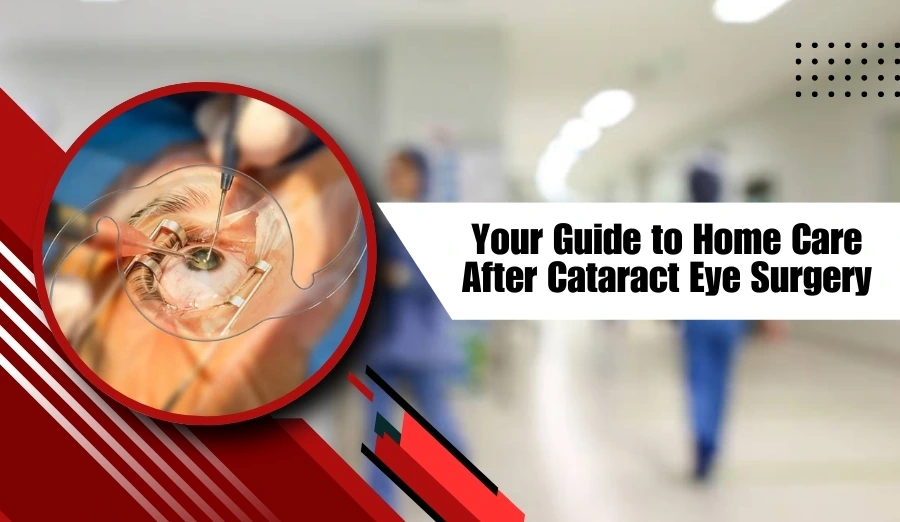
By Pushpanjali
Hello Reader! Welcome to the blog page of Pushpanjali Eye Care, one of the best eye hospital in Kolkata Cataract eye surgery is one of the most common and successful medical procedures performed worldwide. This surgery effectively restores vision by...

By Pushpanjali
Hello Reader! Welcome to the blog page of Pushpanjali Eye Care, one of the best eye hospital in Kolkata. Our eyes are among our body's most delicate and vital organs, yet they are often subjected to various issues due to...

By PushpanjaliEyeCare
Hello Reader! Welcome to the blog page of Pushpanjali Eye Hospital, one of the best eye clinics. Maintaining eye health after vitreo-retina surgery is critical for a successful recovery and optimal long-term vision. The period following this type of surgery is...

By PushpanjaliEyeCare
Discover how to remove specs without surgery using natural methods, eye exercises, and non-surgical eye therapies. Learn from one of the Best Eye Hospitals. Discover Non-Surgical Ways to Remove Specs and Regain Clear VisionUnderstanding Vision ProblemsNatural Methods to Remove Specs...

By PushpanjaliEyeCare
Hello Reader! Welcome to the blog page of Pushpanjali Eye Care, one of the best eye hospital in Kolkata. For those who have spent years dealing with glasses or contact lenses, waking up to crystal-clear vision is truly exciting. Many...

By PushpanjaliEyeCare
Hello Reader! Welcome to the blog page of Pushpanjali Eye Hospital Explore how SMILE surgery provides better vision correction compared to traditional methods. Learn why it’s recommended by one of the best eye hospitals for optimal results. SMILE Surgery: A Revolutionary...
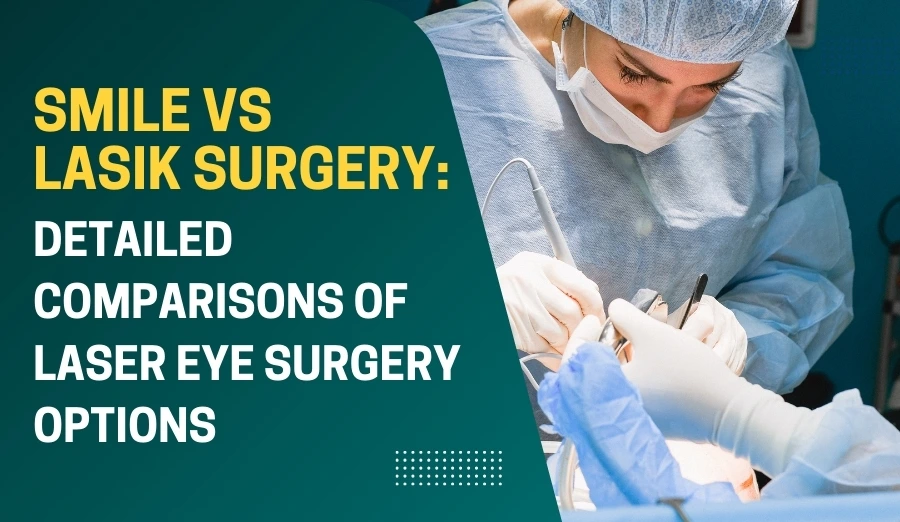
By Pushpanjali
Hello Reader! Welcome to the blog page of Pushpanjali Eye Care, one of the best eye hospital in Kolkata. When it comes to achieving perfect vision without glasses or contact lenses, laser eye surgeries like SMILE and LASIK are two...

By PushpanjaliEyeCare
Discover the latest advancements in Oculoplasty for eye health at one of the Best Eye Hospitals, from robotic-assisted surgeries to 3D imaging, and how these innovations are improving surgical outcomes and patient care. Exploring the Latest Advancements in Oculoplasty for...

By PushpanjaliEyeCare
Hello Reader! Welcome to the blog page of Pushpanjali Eye Care one of the best eye hospital in Kolkata. Cataracts, a common condition that clouds the eye's natural lens, can significantly impact vision, particularly in individuals with diabetes. At Pushpanjali...
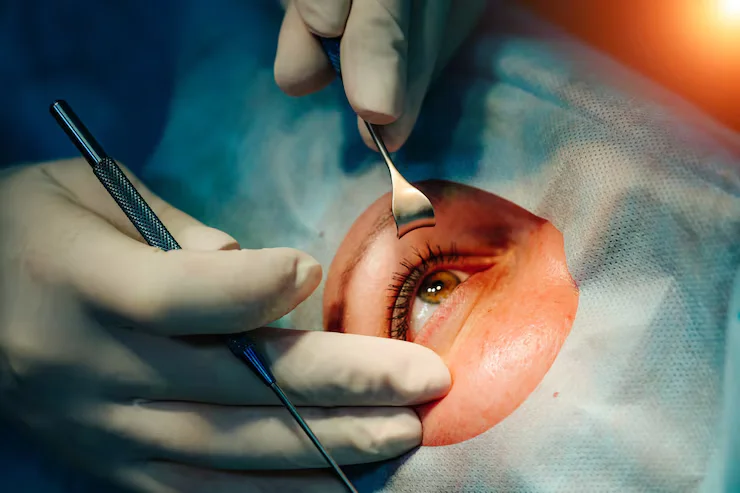
By PushpanjaliEyeCare
Hello Reader! Welcome to the blog page of Pushpanjali Eye Hospital, one of the best eye care. Considering glaucoma surgery? Learn about the risks and benefits of Glaucoma Operation and how it plays a crucial role in protecting your vision. Discover...

By PushpanjaliEyeCare
Hello Reader! Welcome to the blog page of Pushpanjali Eye Care one of the best vision care clinic. Today in this blog we will share with you the tips to prevent Glaucoma from Worsening. Glaucoma is a group of eye...
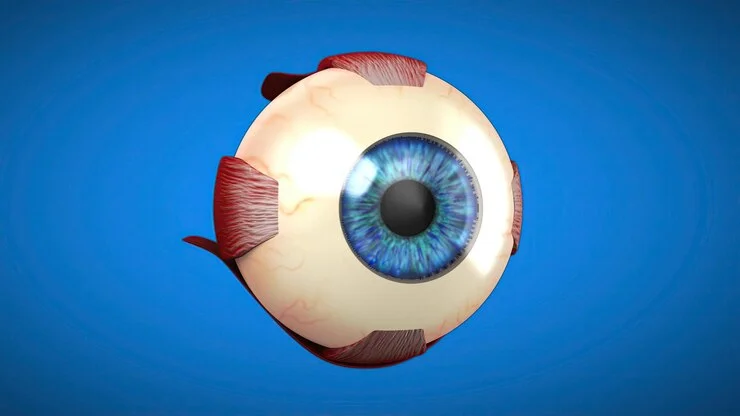
By PushpanjaliEyeCare
Hello Reader! Welcome to the blog page of Pushpanjali Eye Hospital, one of the best ophthalmology care. Prevent Glaucoma: 5 Lifestyle Changes for Healthy Vision1. Schedule Regular Eye CheckupsWhy Are Regular Eye Exams Crucial?2. Maintain a Nutrient-Rich DietNutrients That Promote Eye...

By PushpanjaliEyeCare
The Latest Advancements in Corneal Transplant Surgery Hello Reader! Welcome to the blog page of Pushpanjali Eye Care, one of the best eye vision clinic. The cornea, the clear outermost layer of the eye, plays a critical role in focusing...

By PushpanjaliEyeCare
Learn how to prevent corneal abrasions with expert tips on eye safety, hygiene, and protective measures. Discover insights from one of the best eye hospitals in Kolkata. Essential Tips to Prevent Corneal Abrasions and Maintaining Eye HealthWhat Is a Corneal...

By Pushpanjali
Hello Reader! Welcome to the blog page of Pushpanjali Eye Care, one of the best eye hospitals in Kolkata. In this blog, we will share some details on Corneal Abrasions and the reason behind their pain. The cornea is the...
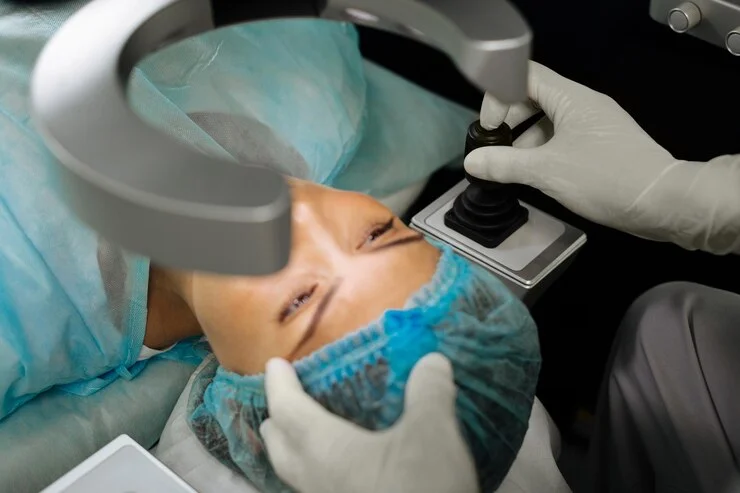
By PushpanjaliEyeCare
Hello Reader! Welcome to the blog page of Pushpanjali Eye Hospital, one of the best ophthalmogy care. IntroductionWhat Exactly is LASIK Eye Surgery?How Safe Is LASIK Surgery?What Happens During LASIK Surgery?How Long Does Recovery Take After LASIK Surgery?Is LASIK Surgery Suitable...

By PushpanjaliEyeCare
Hello Reader! Welcome to the blog page of Pushpanjali Eye Care, one of the best eye hospital in Kolkata. At Pushpanjali Eye Care, one of the best eye hospitals in Kolkata, we pride ourselves on offering a wide range of...
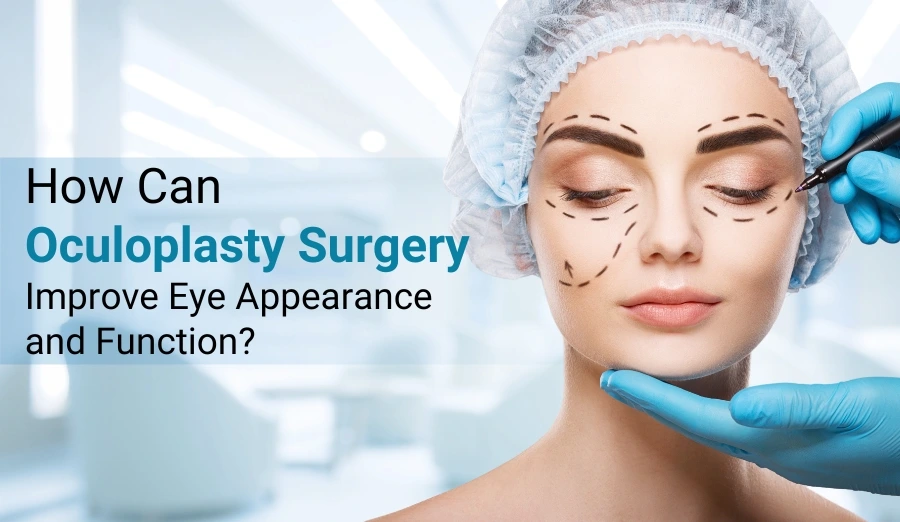
By PushpanjaliEyeCare
Hello Reader! Know more abour Oculoplasty Surgery in Kolkata to read our blog. Welcome to the blog page of Pushpanjali Eye Care, one of the best eye care center in Kolkata. When it comes to addressing both the functionality and...

By PushpanjaliEyeCare
Hello Reader! Welcome to the blog page of Pushpanjali Eye Hospital, one of the best eye care in Kolkata. Learn whether refractive errors can be prevented. Discover the facts about refractive errors, eye protection, and how to manage them effectively, with...
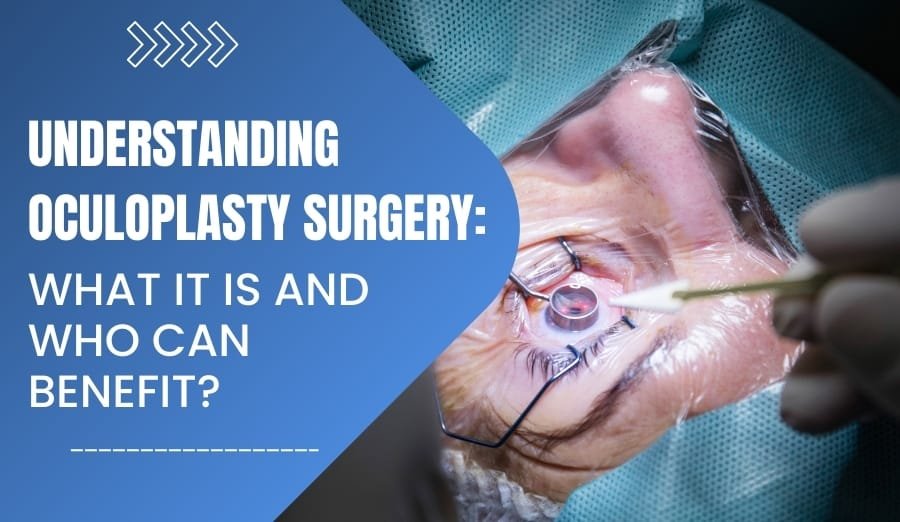
By PushpanjaliEyeCare
Hello Reader! Welcome to the blog page of Pushpanjali Eye Care, one of the best eye hospitals in Kolkata. At Pushpanjali Eye Care, recognized as the best eye hospital in Kolkata, we take pride in offering specialized treatments that cater...

By PushpanjaliEyeCare
Hello Reader! Welcome to the blog page of Pushpanjali Eye Hospital, one of the best eye care in Kolkata. Explore effective eye exercises to boost focus and reduce strain from experts at the Best Eye Hospital in Kolkata. Improve your eye...

By PushpanjaliEyeCare
Hello Reader! Welcome to the blog page of Pushpanjali Eye Care, one of the best eye hospital in Kolkata. In this blog, our main spotlight will be on how to keep your cornea healthy and tips for healthy eyes. We...

By PushpanjaliEyeCare
Hello Reader! Know more about Corneal Transplant. Welcome to the blog page of Pushpanjali Eye Hospital, one of the best eye care in Kolkata. Preparing for a corneal transplant? Here are the top questions you should ask your surgeon to ensure...

By PushpanjaliEyeCare
Hello Reader! Know more about of cornea transplant. Welcome to the blog page of Pushpanjali Eye Care, one of the best eye hospital in Kolkata, Corneal transplantation, or corneal grafting, is a procedure that replaces damaged or diseased corneal tissue...
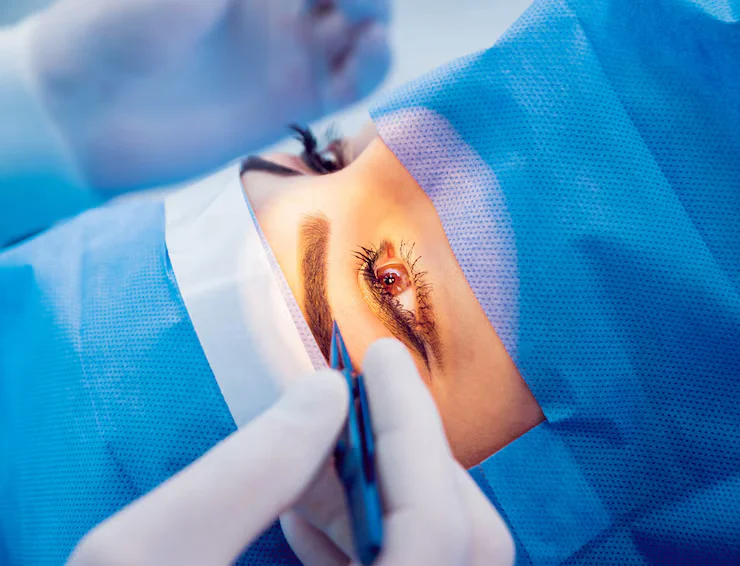
By PushpanjaliEyeCare
Hello Reader! Know How vitreo retinal surgery help for eye patient. Welcome to the blog page of Pushpanjali Eye Hospital, the best ophthalmogy care in Kolkata. The development in vitreo-retinal surgery helps to provide results with minimal invasion required for eye...
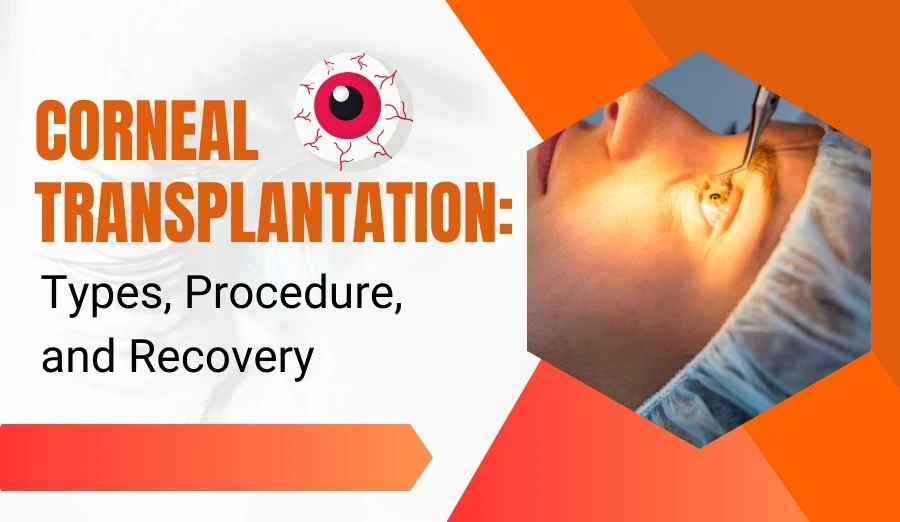
By PushpanjaliEyeCare
Hello Reader! Welcome to the blog page of Pushpanjali Eye Care, the best eye hospital in Kolkata. Corneal transplantation, also known as corneal grafting, is a surgical procedure where damaged or diseased corneal tissue is replaced with healthy tissue from...

By PushpanjaliEyeCare
Hello Reader! Welcome to the blog page of Pushpanjali Eye Hospital, the best eye hospital in Kolkata. Discover the essential nutrients that can enhance your eye health. Learn how a balanced diet can make a difference, with insights from the...
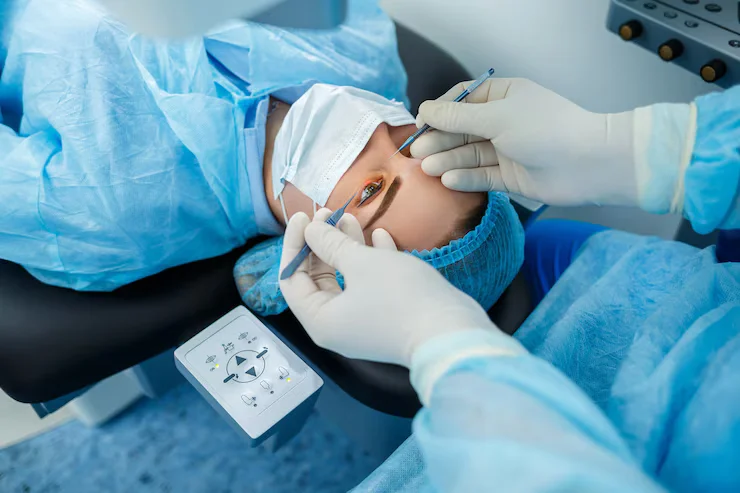
By PushpanjaliEyeCare
Hello Reader! Welcome to the blog page of Pushpanjali Eye Hospital, one of the best eye hospital in Kolkata. Looking for ways to improve both eye health and appearance? Discover why Oculoplastic Surgery might be the solution you need, with insights...
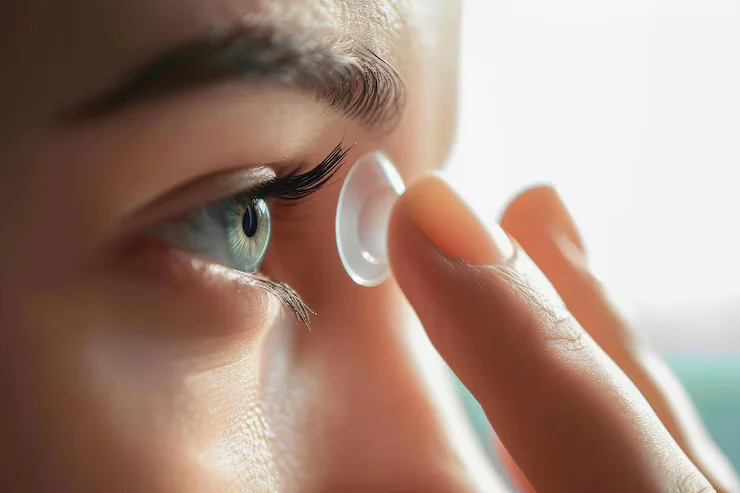
By PushpanjaliEyeCare
Learn the safest ways of corneal health while wearing contact lenses. The guidance is provided by a person who works at one of the best eye care facilities. IntroductionUnderstanding Corneal Health for Contact Lens WearersWhat Is the Cornea, and Why...

By PushpanjaliEyeCare
Hello Reader! Welcome to the blog page of Pushpanjali Eye Care, one of the best eye hospital in Kolkata. At Pushpanjali Eye Care, the best eye hospital in Kolkata, we understand that corneal health is fundamental to maintaining clear and...

By PushpanjaliEyeCare
How Does Ultraviolet Light Damage Your Cornea Health? Learn ways to properly take care of your eyes and keep your corneas healthy by reading on from one of the Best Eye Hospital in Kolkata IntroductionWhat is the Cornea and Its...

By PushpanjaliEyeCare
Hello Reader! Welcome to the blog page of Pushpanjali Eye Hospital, one of the best eye hospitals in Kolkata. Corneal transplant surgery are an extremely important surgery for most patients with damaged or diseased corneas, but, like most clinical and medical...

By PushpanjaliEyeCare
Hello Reader! Welcome to the blog page of Pushpanjali Eye Care, one of the best eye care center in Kolkata. The human eye is a remarkable organ, functioning as our window to the world by capturing light and transmitting signals...
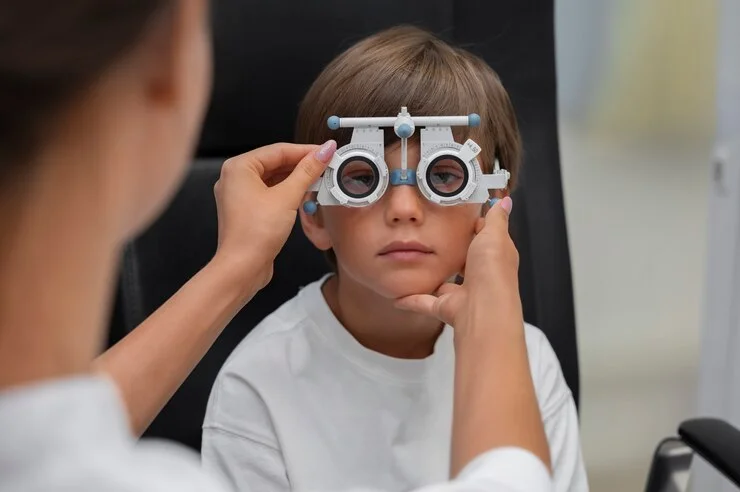
By PushpanjaliEyeCare
Learn the early warning signs of vision problems in children and get those little eyes checked by the best eye hospital in Kolkata. As parents, we always make sure our child's holistic health is up to the mark. While we...
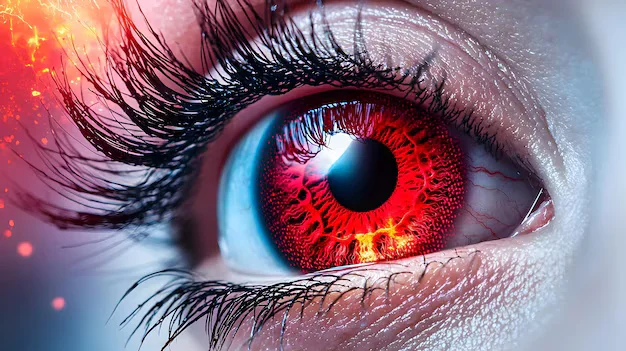
By PushpanjaliEyeCare
Conjunctivitis vs Eye Flu It is better to know the most common issues of the eyes that need to be treated efficiently. Amidst the common conditions and problems are conjunctivitis and eye flu, which people usually confuse with each other....

By PushpanjaliEyeCare
Hello Reader! Welcome to the blog page of Pushpanjali Eye Care, the best eye hospital in Kolkata. Eye flu, or conjunctivitis, is a highly contagious eye infection that can spread rapidly, especially in crowded areas and during specific seasons. As...

By PushpanjaliEyeCare
Hello Reader! Welcome to the blog page of Pushpanjali Eye Care, the best eye hospital in Kolkata. As parents, ensuring your child's overall health and well-being is a top priority, including eye health. Children rely heavily on their vision to...

By PushpanjaliEyeCare
It's astounding how much the role of nutrition gets overlooked in one's quest to have better vision and overall eye health. At Pushpanjali Eye Care, we completely affirm that a well-balanced diet is among the most important things for optimal...

By PushpanjaliEyeCare
Being an athlete, vision is considered one of the biggest assets. While playing cricket, football, or for that matter, any other sport, protection of the eyes should be a matter of utmost priority. At Pushpanjali Eye Care, the Best Eye...

By PushpanjaliEyeCare
In today's time, when information is just a click away, there comes a spur of myths related to eye care that might deceive people. At Pushpanjali Eye Care, believed to be the Best Eye Hospital in Kolkata, we think comprehension...
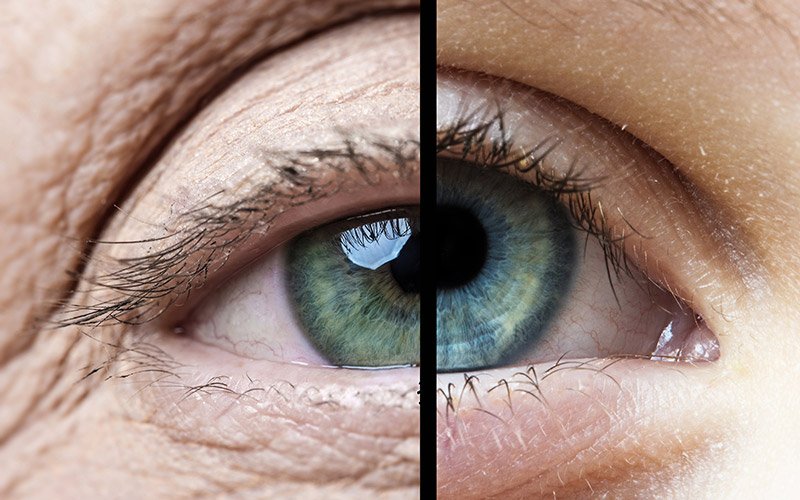
By PushpanjaliEyeCare
With increasing age, several changes take place within our bodies, and the eyes are no exception. Aging can drastically affect your vision and, to a great extent, your quality of life, which is a fact believed by the best ophthalmology...
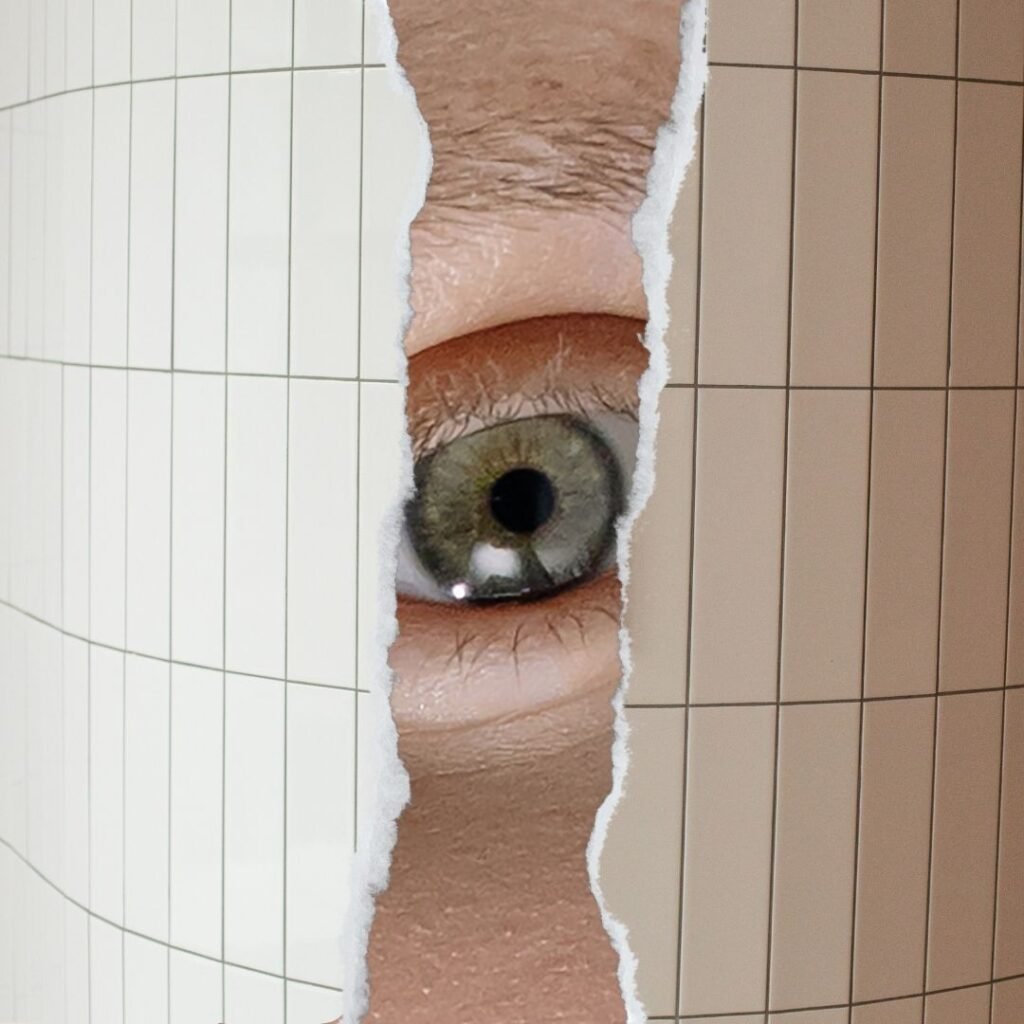
By PushpanjaliEyeCare
Although cataract eye problem and treatment are one of the usual problems with the eyes, especially in aged people, knowing about the problem and where to get the best treatment is a difference it makes. The experts at Pushpanjali Eye...
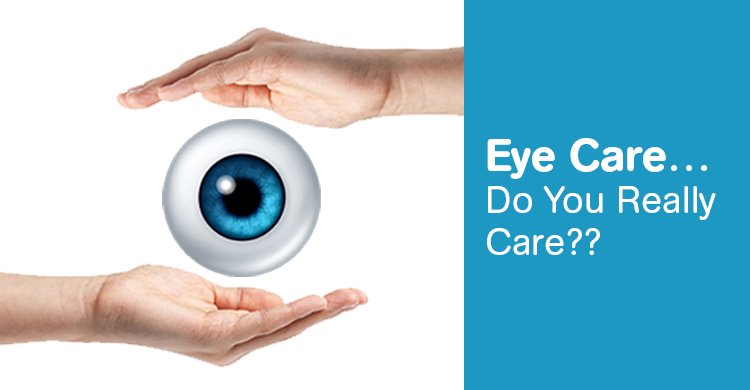
By PushpanjaliEyeCare
Your eyes are the windows to the world, and keeping them healthy should be your number one concern. We at Pushpanjali Eye Care believe that good vision begins with good practices. As important as a regular check-up of the eyes...

By PushpanjaliEyeCare
Without a doubt, technology works in the forefront continuously to reinvent the wheel of ophthalmology for improved quality eye care and ensure better outcomes for patients. Pushpanjali Eye Care is in the lead because it is one of the best...
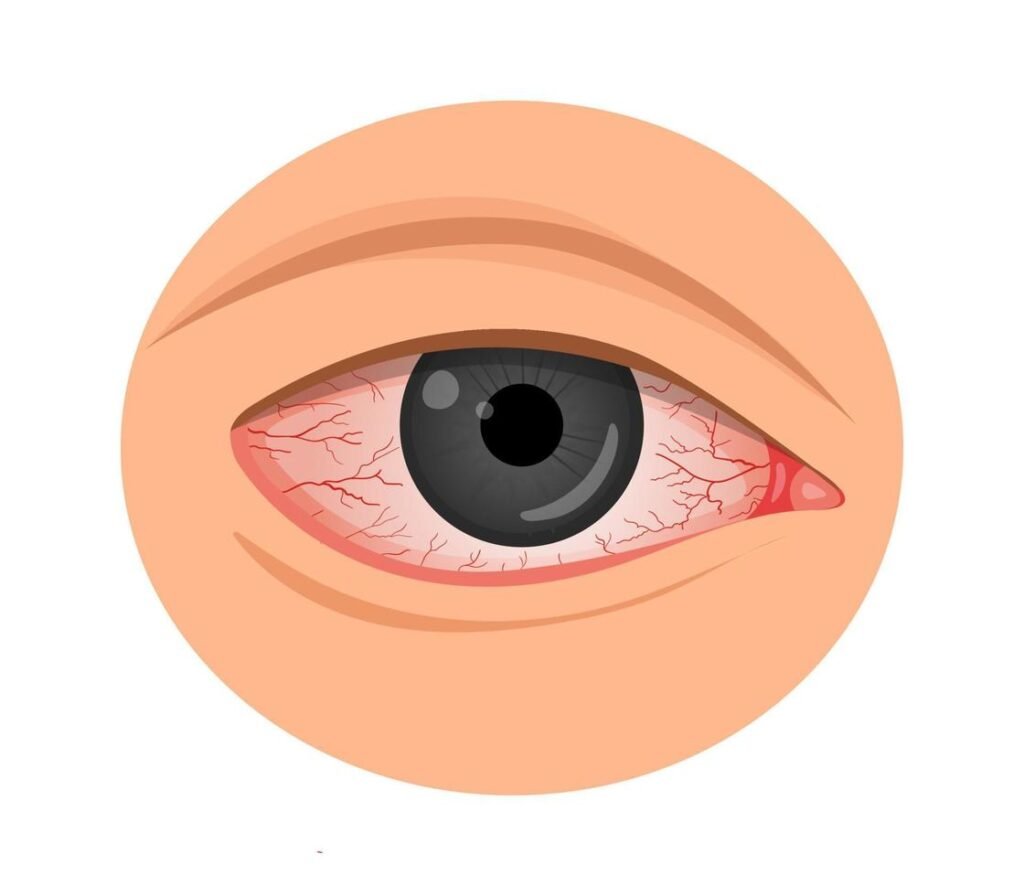
By PushpanjaliEyeCare
With modern proliferation, digital devices surround a great deal of our time day in and day out staring at the screen—some form of a computer at work, a tablet, or a smartphone. Technology brings great conveniences with it; at the...

By PushpanjaliEyeCare
Hello Reader! Welcome to the blog page of Pushpanjali Eye Care, the best Lasik treatment in Kolkata. Here we will share some of the benefits & costs of Lasik surgery for you. LASIK (Laser-Assisted in Situ Keratomileusis) surgery is...
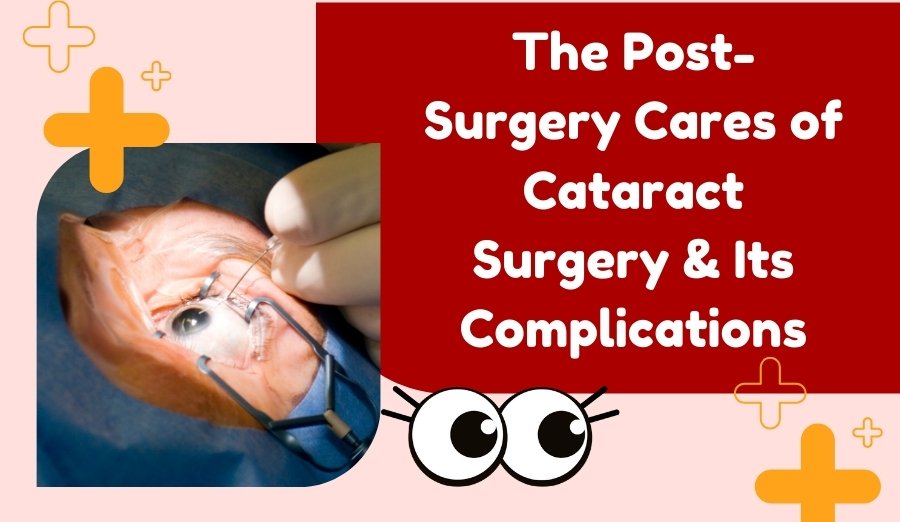
By PushpanjaliEyeCare
Hello Reader! Welcome to the blog page of Pushpanjali Eye Care, the best eye hospital in Kolkata. Cataract surgery is one of the most common and successful surgical procedures performed worldwide, with millions of people regaining their vision each year....
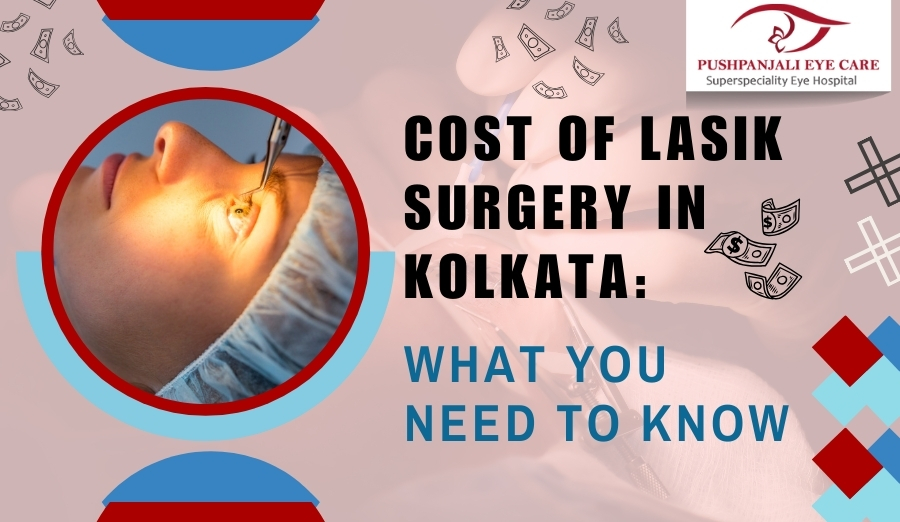
By PushpanjaliEyeCare
Dear Reader! Let Know LASIK eye surgery from this blog. Welcome to the blog page of Pushpanjali Eye Care, the Best Eye Hospital in Kolkata, where we prioritize your vision and eye health. If you are considering LASIK surgery in...
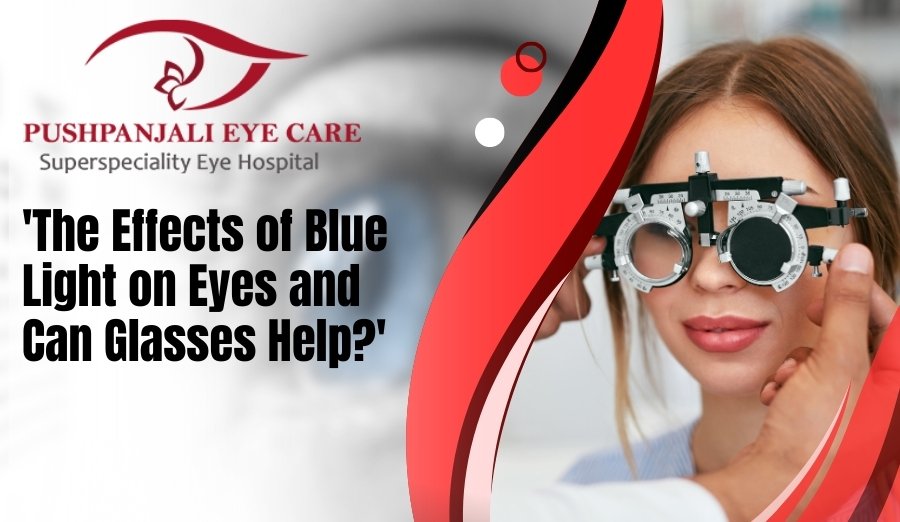
By PushpanjaliEyeCare
Hello Reader! Welcome to the blog page of Pushpanjali Eye Care, the best eye hospital in Kolkata. In today's digital age, our exposure to screens has increased exponentially, leading to growing concerns about the impact of blue light on our...

By PushpanjaliEyeCare
Hello Reader! Welcome to the blog page of Pushpanjali Eye Care, the best eye hospital in Kolkata. In our fast-paced digital world, where most of our work revolves around screens, taking care of our eyes has become more crucial than...

By Pushpanjali
Hello Reader! Welcome to the blog page of Pushpanjali Eye Care, one of the best eye hospitals in Kolkata. Here we will share with you some of the best Yoga asanas for your eyes. In today's digital age, where screens...

By PushpanjaliEyeCare
Hello Reader! Welcome to the blog page of Pushpanjali Eye Hospital, the best eye hospital in Kolkata. In today's digital age, many of us spend prolonged hours staring at screens, be it for work or leisure. This has led to...

By PushpanjaliEyeCare
Hello Reader! Welcome to the blog page of Pushpanjali Eye Care, one of the best eye hospitals in Kolkata. Maintaining good eye health is crucial throughout the year, as each season presents unique challenges for our eyes. At Pushpanjali Eye...
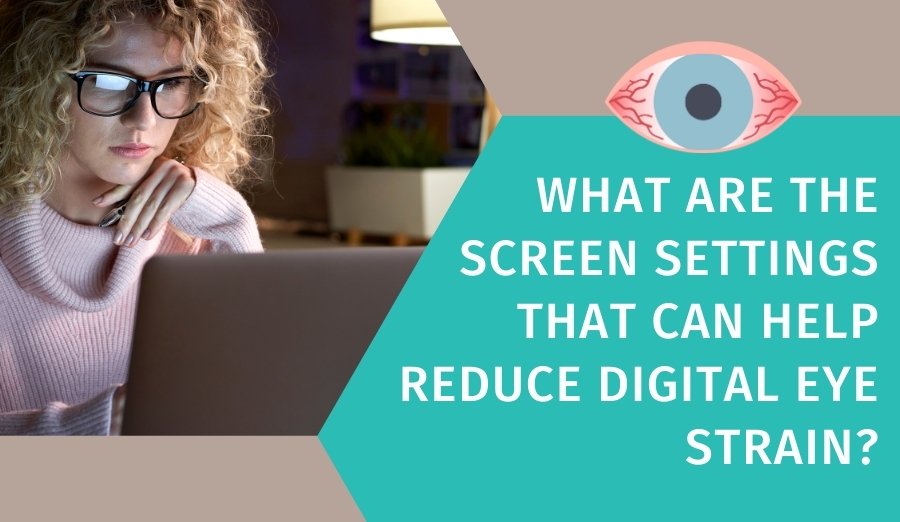
By PushpanjaliEyeCare
Hello Reader! Welcome to the blog page of Pushpanjali Eye Care one of the best eye hospitals in Kolkata. In today's digital age, we spend a significant portion of our day staring at screens—be it computers, smartphones, tablets, or televisions....
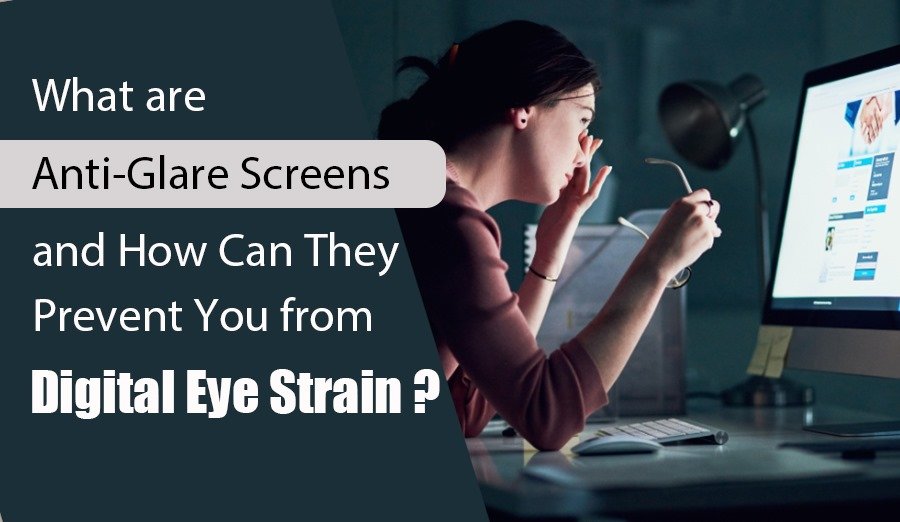
By PushpanjaliEyeCare
Hello Reader! Welcome to the blog page of Pushpanjali Eye Care, one of the best eye hospitals in Kolkata. In today's digital age, our reliance on screens has increased exponentially, whether for work, education, or leisure. However, prolonged screen time...

By PushpanjaliEyeCare
Hello reader! Welcome to the blog page of Pushpanjali Eye Hospital one of the best eye hospitals in Kolkata. In today’s digital age, screens are ubiquitous, both at work and at home. However, prolonged exposure to screens can have detrimental...

By PushpanjaliEyeCare
Hello Reader! Welcome to the blog page of Pushpanjali Eye Hospital one of the best eye hospitals in Kolkata. In our modern world, where artificial lighting and digital screens dominate our daily lives, the significance of natural light for maintaining...
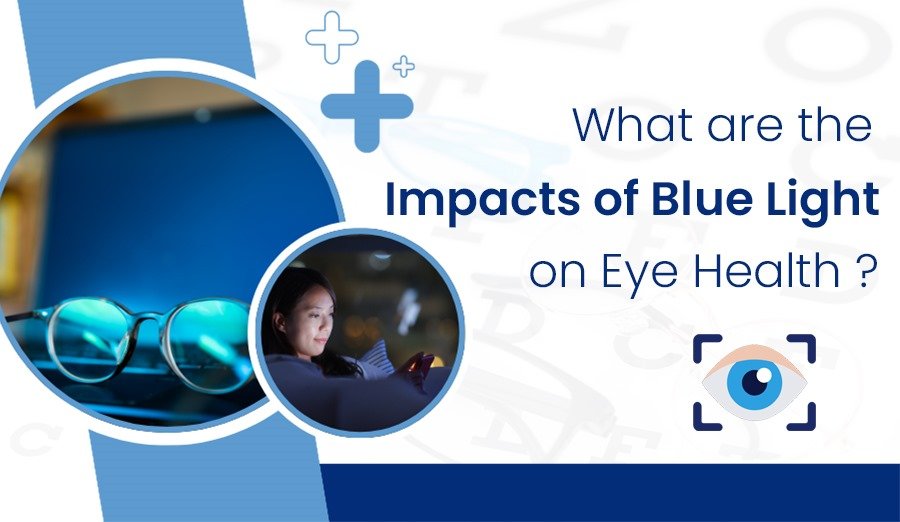
By PushpanjaliEyeCare
Hello Reader! Welcome to the blog page of Pushpanjali Eye Hospital one of the best eye hospitals in Kolkata. In today's digital age, we are constantly exposed to screens emitting blue light—from smartphones and tablets to computer screens and LED...
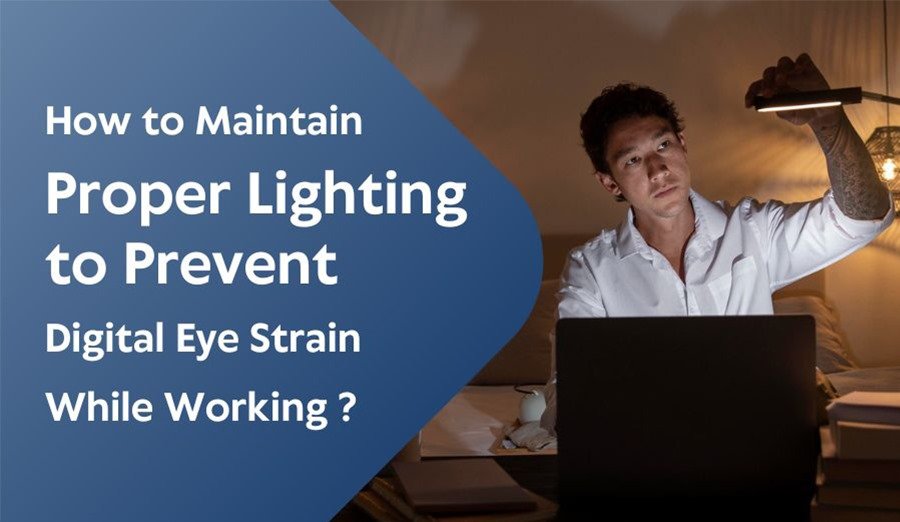
By PushpanjaliEyeCare
Hello reader! Welcome to the blog page of Pushpanjali, one of the best eye hospitals in Kolkata. In this blog, we will share with you some of the ways to maintain proper lighting to prevent digital eye strain. In today's...

By PushpanjaliEyeCare
Hello Reader! Welcome to the blog page of Pushpanjali Eye Care, one of the best eye hospitals in Kolkata. In this blog, we will share some of the best eye exercises to relieve eye strain. In today's digital age, computers,...

By PushpanjaliEyeCare
Hello Reader! Welcome to the blog page of Pushpanjali Eye Care, one of the best eye hospitals in Kolkata. In this blog, we are going to share some of the ways to prevent eye strain. Nowadays, screen time has become...
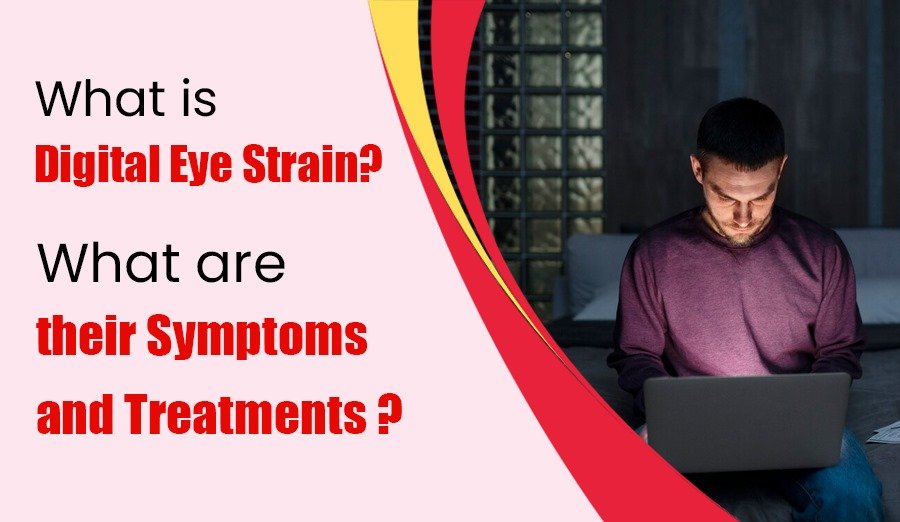
By PushpanjaliEyeCare
Hello Reader! Welcome to the blog page of Pushpanjali Eye Care, one of the best eye hospitals in Kolkata. Here, in this blog, we will share with you the basic knowledge about digital eye strain and how to treat them....
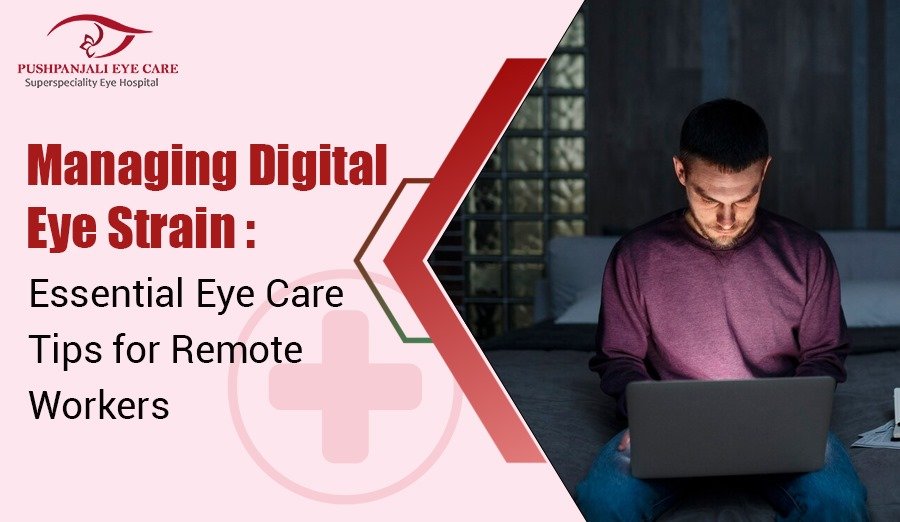
By PushpanjaliEyeCare
Dear Reader! Welcome to the blog page of Pushpanjali Eye Care, one of the best eye care hospitals in Kolkata. We will discuss about Digital Eye Strain Care in this Blog. Here, you will find a wealth of educational eye...
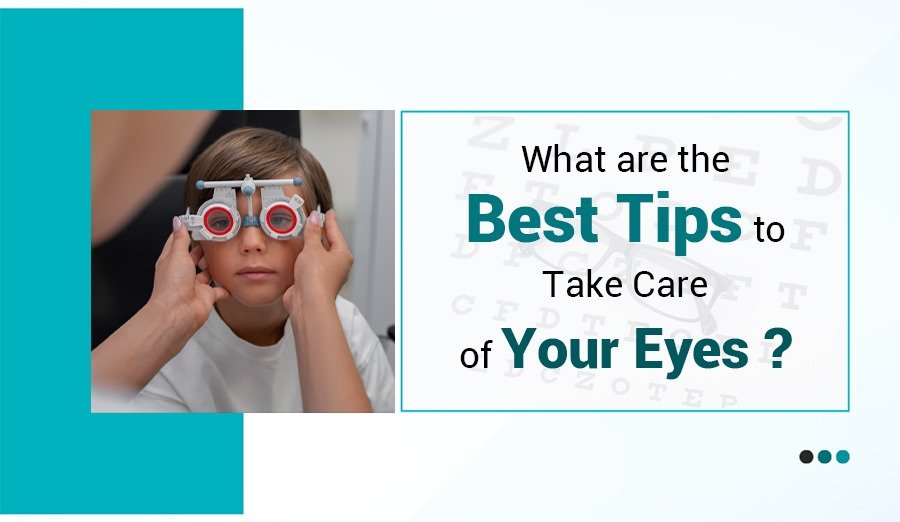
By PushpanjaliEyeCare
Hello Readers! Welcome to the blog page of Pushpanjali Eye Care one of the best eye hospitals in Kolkata. In this blog we will share with you some of the best tips to keep your eye healthy. Your eyes are...

By PushpanjaliEyeCare
Hello Ready! Welcome to the blog page of Pushpanjali Eye Care, one of the best eye hospitals in Kolkata. As parents, ensuring our children’s health is a top priority, including their eye health. At Pushpanjali Eye Care, recognized as the...

By PushpanjaliEyeCare
Hello Reader! Welcome to the blog page of Pushpanjalii Eye Care, one of the best eye hospitals in Kolkata. At Pushpanjali Eye Care, the best eye hospital in Kolkata, we understand the importance of healthy vision. Our eyes are our...
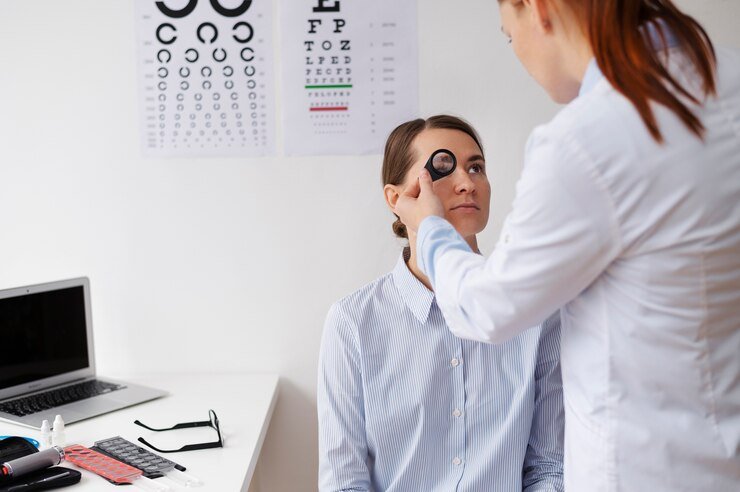
By PushpanjaliEyeCare
Hello Reader! Welcome to the blog page of Pushpanjali Eye Care, one of the best eye hospitals in Kolkata. Glaucoma is a group of eye conditions that damage the optic nerve, crucial for good vision, and is often caused by...

By Pushpanjali
Hello Reader! Welcome to the blog page of Pushpanjali Eye Care, one of the best eye hospitals in Kolkata. Glaucoma is a group of eye conditions that can cause blindness if left untreated. It is a progressive disease that damages...
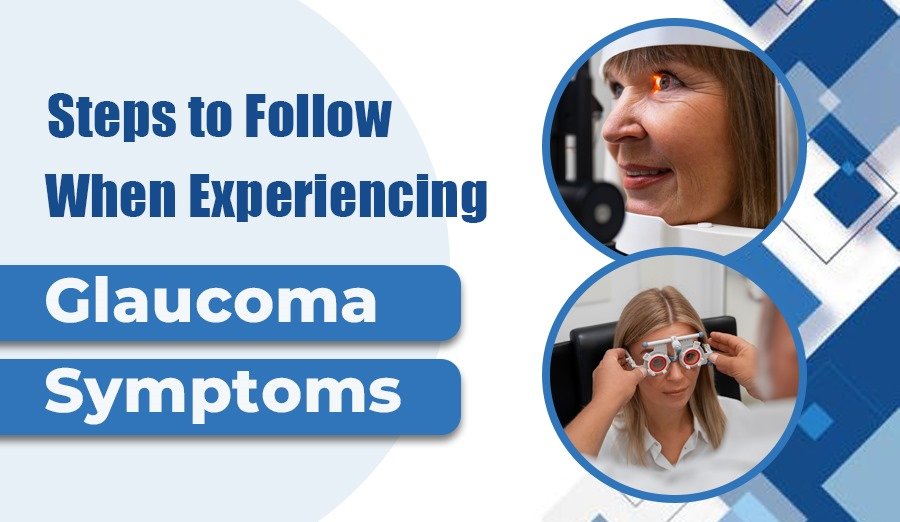
By PushpanjaliEyeCare
Hello Reader! Welcome to the blog page of Pushpanjali Eye Hospital one of the best eye hospitals in Kolkata. Here in this blog, we will share with you the general steps you should take after having Glaucoma symptoms. Hope this...
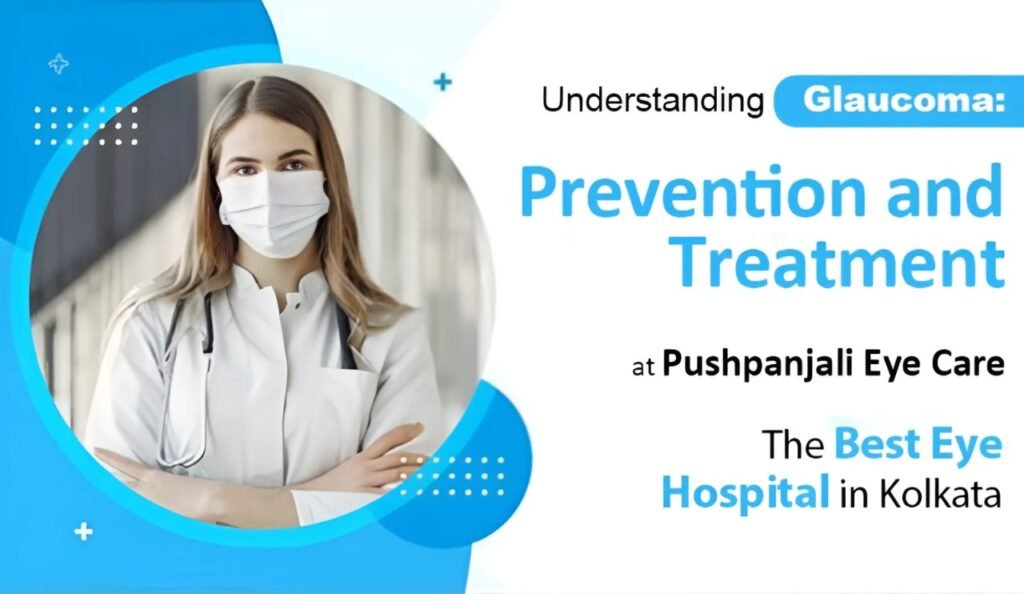
By PushpanjaliEyeCare
Hello Reader! Welcome to the blog page of Pushpanjali Eye Care, the best eye hospital in Kolkata. Glaucoma stands as one of the leading causes of irreversible blindness worldwide, affecting millions of individuals, often without noticeable symptoms until the later...
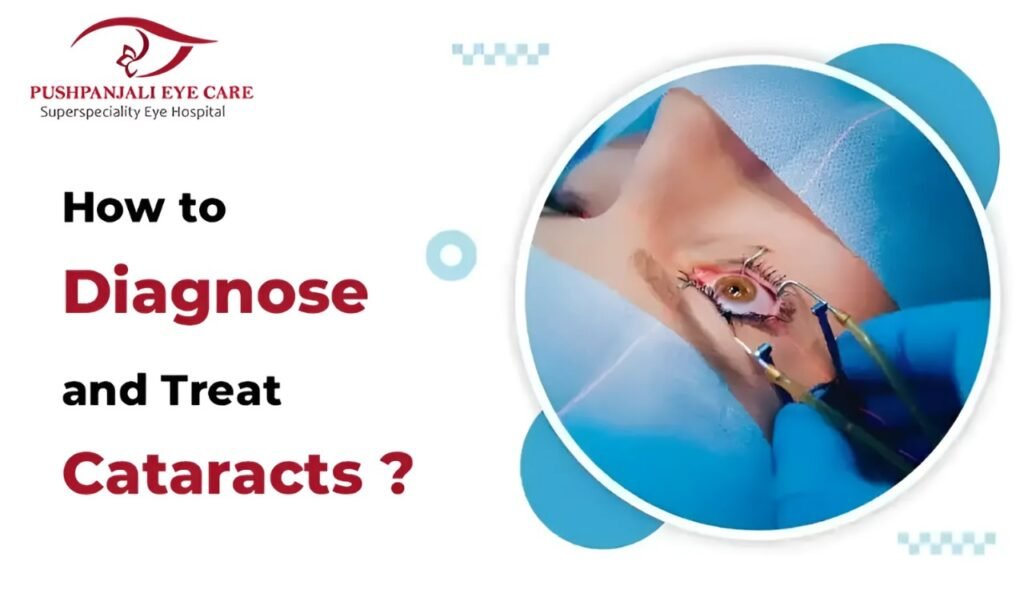
By PushpanjaliEyeCare
Hello Reader! Welcome to the blog page of Pushpanjali Eye Care, one of the best eye hospitals in Kolkata. Cataracts are a common eye condition that affects millions of people worldwide, leading to blurred vision and, if left untreated, eventual...
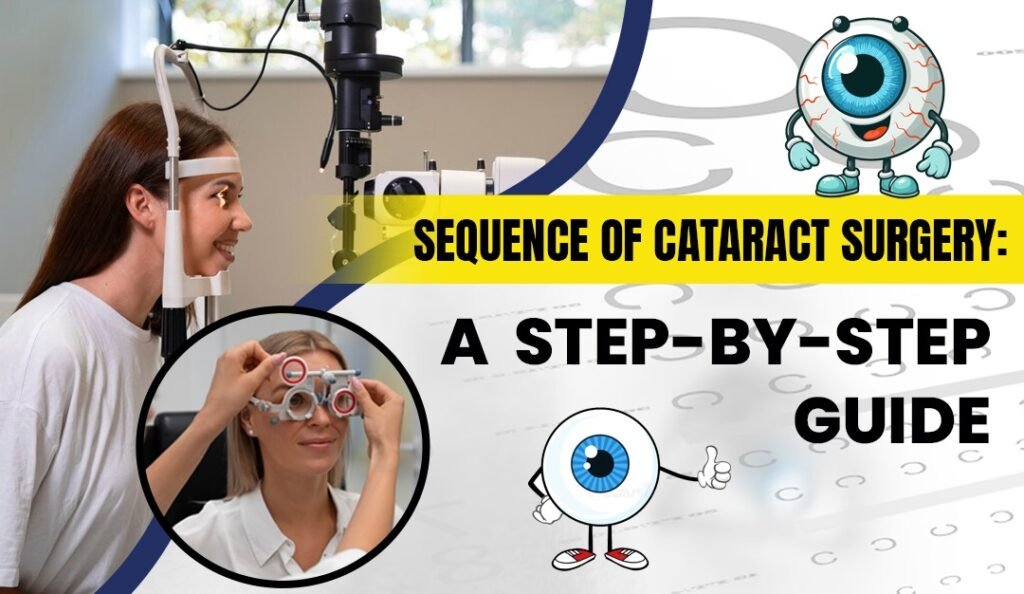
By PushpanjaliEyeCare
Hello Reader! Welcome to the blog page of Pushpanjali Eye Care one of the best eye hospitals in Kolkata. In this blog, we will take you through the complete sequence of cataract surgery. Cataracts, a prevalent eye condition affecting millions...

By PushpanjaliEyeCare
Hello Reader! Welcome to the blog page of Pushpanjali Eye Care one of the best eye hospitals in Kolkata. Cataracts are a common eye condition that affects millions of people worldwide. Characterized by the clouding of the eye's natural lens,...
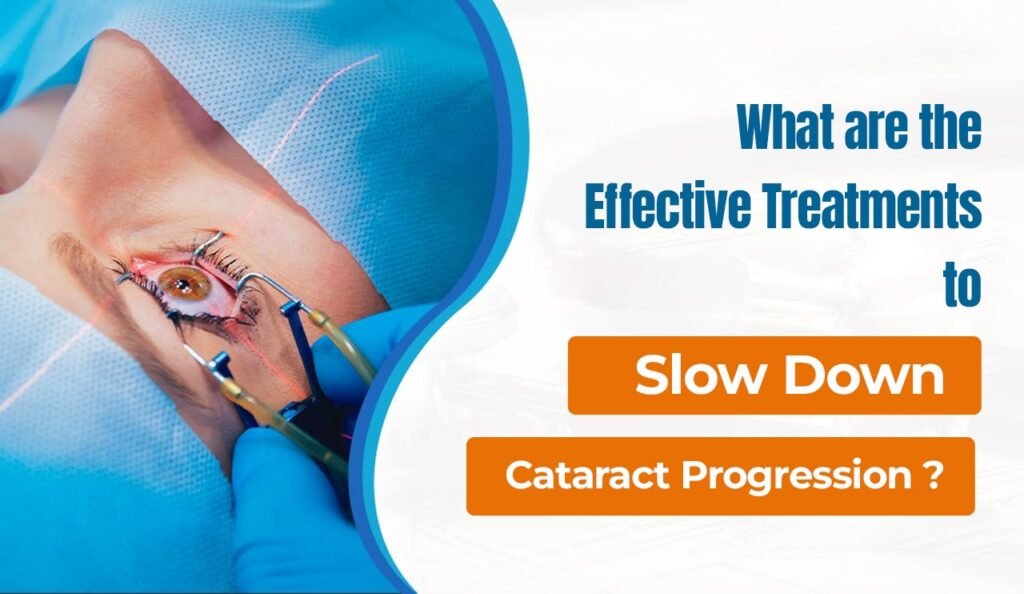
By PushpanjaliEyeCare
Hello Reader! Welcome to the blog page of Pushpanjali Eye Care, one of the best eye hospitals in Kolkata. Cataracts are a common age-related eye condition that clouds the lens of the eye, leading to blurry vision and eventual vision...
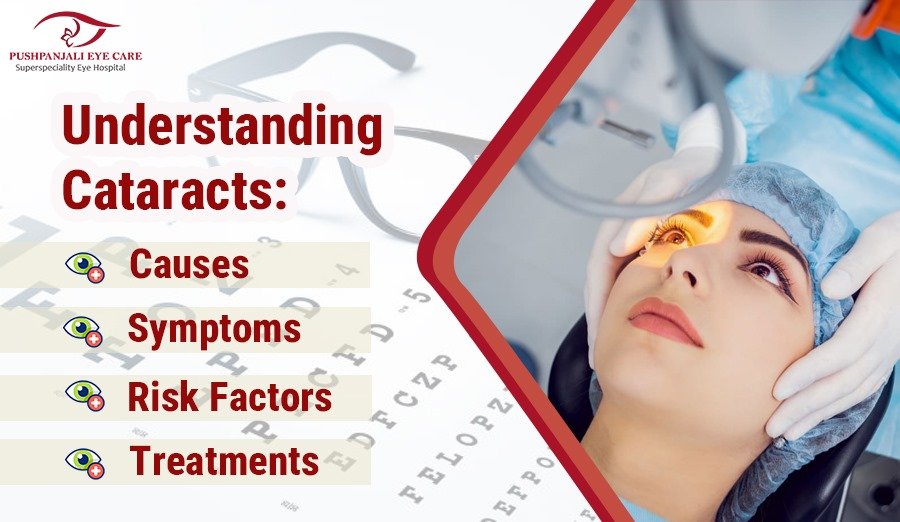
By PushpanjaliEyeCare
Dear Reader! Welcome to the blog page of Pushpanjali Eye Care, your trusted destination for top-notch cataract treatment in Kolkata. We're delighted to have you here as we embark on a journey to explore everything you need to know about...

By PushpanjaliEyeCare
Hello Reader! Welcome to the blog of Pushpanjali Eye Hospital, where we are dedicated to preserving your vision and providing the best possible eye care in Kolkata. In this comprehensive blog, we aim to shed light on glaucoma, a group...
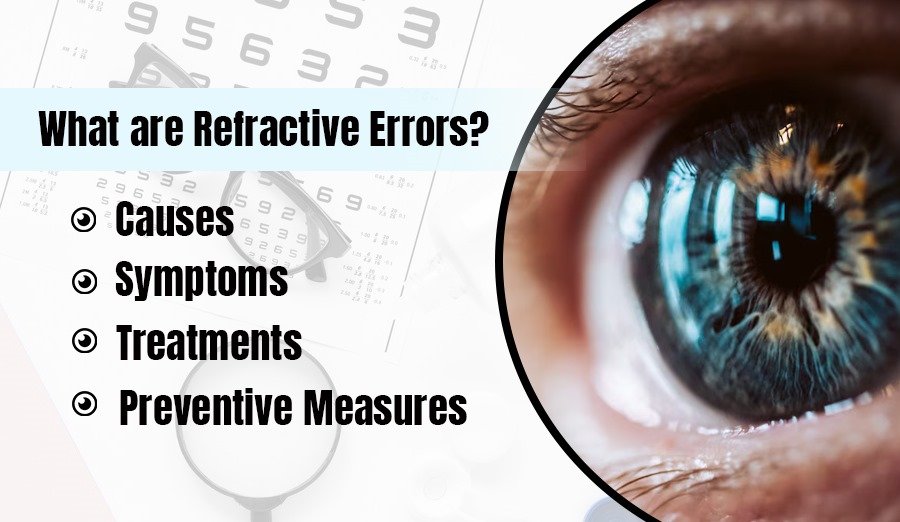
By PushpanjaliEyeCare
Hello Reader! Welcome to Pushpanjali Eye Hospital, renowned as one of the best eye hospitals in Kolkata, where we prioritize your vision and eye health. In this comprehensive guide, we delve into the world of refractive errors — a...

By PushpanjaliEyeCare
Hello Reader! Welcome to the blog page of Pushpanjali Eye Care, one of the best eye hospitals in Kolkata. Here in this blog, we will share with you the details about cataracts their symptoms, treatments, and preventions. [ez-toc] Cataract, a...

By PushpanjaliEyeCare
Hello Reader! Welcome to the blog page of Pushpanjali Eye Hospital, a beacon of excellence in eye care, setting the standard as one of the best eye hospital in Kolkata. At Pushpanjali, we understand the critical role that infrastructure and...

By PushpanjaliEyeCare
Dear Visitor! Welcome to the blog page of Pushpanjali Eye Care, a beacon of optical health in the vibrant city of Kolkata. If you find yourself here, you're likely searching for the best eye hospital in Kolkata. Navigating the sea...